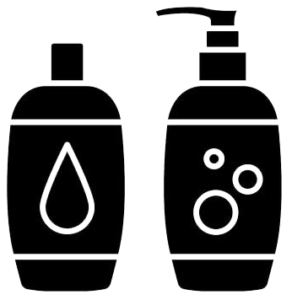
Frequently Asked Questions
A good hair day is a blessing and to achieve that everyday can be a game changer. Choosing the right shampoo plays an important part in this but many people struggle to figure it out. With many brands and labels available in the market, it can be a nightmare finding that correct shampoo. According to the Trichologist, the best way to choose the right shampoo begins with knowing your scalp type. Oily scalp usually catches dirt easily and needs stronger shampoos with sulphates for cleansing. Sulphates are not necessarily bad when it comes to oily scalp as they can really purify the scalp. For dry scalp, its best to use shampoos with argon oil and essential oil in them so that it can help in retaining moisture. Avoid shampoos with very high alcohol content as it can cause excessive dryness and split ends.
No shampoo can cause hair growth as it hardly stay in your scalp and will not penetrate into your hair follicles to show any growth. Shampoos are meant only for cleansing.

Hair supplements have a huge following with many brands promising thicker and shinier hair. Unfortunately there is very little evidence to prove that these hair supplements can actually work. Unless one is suffering from a specific deficiency such as iron or folate deficient, these supplements will not cause hair growth. In actual fact, excessive iron can cause gastric issue and damage to the liver. Biotin for example is known to be extremely good for hair growth but deficiency of biotin is extremely rare and biotin deficiency causes hair breakage only.
Most of these supplements are derived from synthetic sources instead of natural and do more harm to your body than good. Synthetic derivatives are difficult to absorb and metabolise and can cause unnecessary overload on the kidney and liver. Hence, it is mandatory to consult a Trichologist, who can recommend supplements based on your deficiency and blood test reports. Eating a healthy diet rich in antioxidants has far better results as compared to hair supplements.

You may have noticed that the hair care products in the market catering to men and women are very different – this is because men and women have different scalps. For instance, men’s scalps produce 50% more sebum than female scalps. Men also have a weaker scalp barrier as compared to women, making them more vulnerable to dandruff. A weak scalp barrier also loses moisture much quicker and this increases the risk of dryness and itchiness. For these reasons, treatment for men is mostly targeted towards scalp care and restoration, cleansing of sebum from pores and the scalp surface and protecting and nourishing the scalp.
Women’s scalps on the other hand have a much stronger protective barrier. However, it is believed that their hair strands are more prone to damage and breakage due to the length of the hair. Chemical treatments, hair accessories and hair tools also affect the condition of women’s hair and scalps, causing dryness and irritation. Hair products can also result in buildup, leading to oiliness. Scalp and hair care for women is therefore usually targeted towards repair, removal of buildup from pores and the scalp surface and eliminating dandruff in a more gentle manner without compromising the hair’s natural condition.
In many cases, off-the-shelf products that claim to cater to every hair and scalp concern out there simply won’t cut it. Every individual has a unique set of factors contributing to their various hair and scalp concerns – this is why targeted solution is key. When you consult a Trichologist, you will undergo a thorough scalp analysis and your Trichologist will then recommend a series of customised treatments. Your best bet for resolving your hair and scalp concerns would be to follow the prescribed regime carefully with the specially selected hair products that have been endorsed by a Trichologist.

